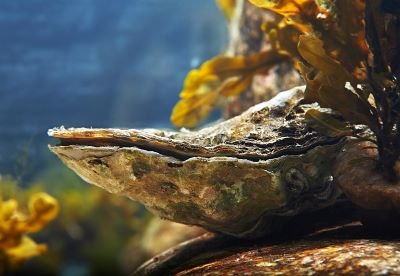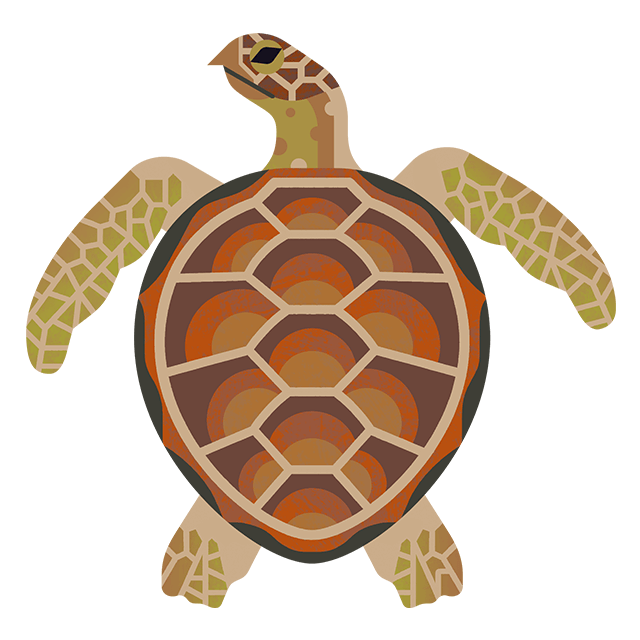
Positive ocean news: May '25 edition
Looking for some ocean optimism? Dive into our latest round up of good news stories for our seas.
Critically endangered amphibians thriving in artificial wetlands

A leucistic axolotl
Credit: LaDameBucolique
A programme in Mexico has seen 18 axolotls successfully released, offering hope for the future of one of the world’s most endangered amphibians.
The species used to be abundant in Xochimilco but was pushed to the brink of extinction with the growth of Mexico City, with only 50 estimated to remain in the wild.
The researchers worked alongside local farmers and volunteers to create refuges for the axolotls, restoring an area of Xochimilco and creating artificial wetlands in a disused quarry. All of the animals survived, foraged successfully and gained weight, and seemed to become friends – showing that if provided with suitable habitat, this rare species can thrive once more.
Read more on the BBC website
12-year-old’s 3km swim raises vital funds to protect the sea
Isabella approached Henley Swimming Club, who decided to support and join her in her challenge. The clubs’ swimmers completed a distance swim on the 1st of May 2025, with Isabella swimming 3km, younger members swimming 1km, and the senior squad swimming 5km.
As well as raising a total of £1,375 for the charity, Isabella’s initiative was covered in her local newspaper, and word even reached Steve Backshall, who sent her a personal video message from the Arctic where he is currently on expedition.
Isabella said: “I’ve always been passionate about wildlife and marine animals especially. I’ve raised money before for WWF UK by doing a triathlon and I felt I wanted to do something else to make a difference. My interest in conservation developed and I found out about the Marine Conservation Society. Its projects are really important and interesting, so I felt the charity was a really good fit for me.”
Learn more about how you can fundraise for our ocean
Over $9 billion pledged for ocean initiatives at annual conference

Credit: Thomas Horig / Ocean Image Bank
227 new commitments were made and USD $9.1 billion pledged towards initiatives to accelerate global ocean conservation efforts at the 10th annual Our Ocean Conference in Busan, South Korea. These address the conference’s target areas of the ocean-climate nexus, marine pollution, MPAs, sustainable fisheries, the blue economy and maritime security.
As well as hosting, South Korea announced 76 commitments worth more than USD $2.5 billion, which include initiatives to improve fisheries management, decarbonise the country’s vast shipping sector and support climate science. It also ratified the high seas treaty – which only 21 of the 113 signatory countries have done.
The highest amount of funding was pledged to blue economy measures, with 59 commitments totalling USD $6 billion pledged. Sustainable fisheries was another key area of focus, receiving 51 pledges worth a total of USD $1.1 billion.
Read more on the Mongabay website
10,000 native oysters restored to Solent
The 10,545 oysters originally came from Cornwall, and were then moved to Wales, before being scrubbed and cleaned by volunteers to ensure they were suitable for the Solent’s habitats.
The initiative aims to revitalise the marine area, with oysters filtering up to 200 litres of water each day, purifying it and removing pollutants and chemicals. The reefs they create also support other marine life by providing a habitat and nursery grounds for other species.
Dr Luke Helmer, who leads the initiative, said “Restoring them is essential for biodiversity, for the health of our coastal waters, and for people who live and work near them.”
Read more on the Oceanographic website
New Caledonia bans seabed mining for 50 years

A common starfish laying on a maerl bed around Loch Sween, Scotland
Credit: Dan Bolt
A 50-year moratorium (a temporary stop of an activity) banning all exploitation of the seabed and exploration for mining purposes has been approved by the New Caledonia congress.
The bans, which have been under discussion for two years, cover the 1.3 million square kilometres within the country’s marine area. Its waters are home to over 9,000 species which live on the coral reef, and it’s hoped that the bans will help protect them.
New Caledonia will also be encouraging further scientific research into deep sea mining to better understand its impact on the ocean.
Read more on the ABC Pacific website
Ten tonnes of litter removed in community river clean
A Peace for Nature, which organised the clean, estimates that there are 5,000 tyres still to be removed. It’s thought that the tyres may have been used to ‘shore up’ the river bank decades ago, or that they were fly-tipped.
Campaigners were concerned that the toxic chemicals from the tyres leaching into the water would harm the river’s wildlife, with Andrew Stride from Ogmore Angling Association saying that fish levels have decreased over the years.
The organisers are planning further clean-ups to remove the remaining tyres and improve the health of the river.
Read more on the BBC website





